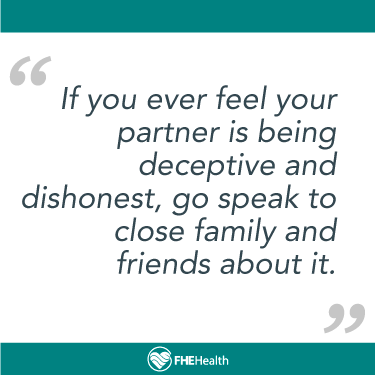
Relationships are hard, and the complexities present differently. Whether it’s family, friends, co-workers or an intimate relationship, we are all nuanced as human beings and the dynamic with nearly every person involved in your life is unique in its own way.
The most intense relationships we will experience in our lives for the most part are with people who we choose to become intimate with. With that comes great highs and rewards but also has the potential to bring us to some really deep lows.
If you have been through a break-up before, it is quite an odd chain of events to go from loving someone to having a volatile relationship at the conclusion of it. That’s what we are here to talk about today, toxic relationships.
A toxic relationship is a complicated monster, it doesn’t mean it’s all bad but it does mean that there are severe red flags. The hardest part of a toxic relationship is admitting that we, ourselves, are in one. It is human nature to want to believe you are in a good relationship with someone you love, it’s also naturally important for us to want our friends/family to think we are in a great relationship.
If you have ever been on the outside looking in at a highly dysfunctional relationship, you know how difficult it can be for your friend/family/loved one to see it themselves.
Let’s look at some telltale signs of a toxic relationship.
Trust Issues
 Above all else, a functioning, healthy relationship requires trust. Maybe that’s just a personal opinion, but I feel without any trust, everything else gets disrupted. Trust brings security, peace of mind and stability to any relationship.
Above all else, a functioning, healthy relationship requires trust. Maybe that’s just a personal opinion, but I feel without any trust, everything else gets disrupted. Trust brings security, peace of mind and stability to any relationship.
Having a dishonest partner can bring about a world of insecurities. It is never a black and white ordeal either. The moment there is a hint of dishonesty occurring, it can become a real down spiral after that.
Challenging the person you are in a loving relationship with is incredibly difficult purely because of their reaction. The reaction and conversation following will usually speak volumes about the manner. Generally, your partner will get defensive and angry (bad sign) or they will be understanding and clear up any miscommunication (good sign)
If you ever feel your partner is being deceptive and dishonest, go speak to close family and friends about it. Seek counsel so the conversation has can be productive if it was in fact a misunderstanding.
One of the biggest reasons toxic relationships last entirely too long is because of the secrecy of how toxic it is. Seek counsel if you are getting heavily suspicious about your partner. It is imperative.
Hostile Interactions
Along with trust, anybody who has done work on a relationship of their own will tell you how important healthy communication is. To be able to be open with each other all the time and stay calm even during conflict is the main goal for every relationship.
If you notice any of these types of communications occasionally these are definite red flags
- Name-calling
- Screaming
- Ignoring
- Complete Silent Treatment
- Accusatory statements
- Blaming
- Throwing/Breaking things
Things are not supposed to always be calm and peachy. Any healthy relationship has their arguments and ‘fights’, BUT it is not supposed to be a weekly or even daily event, not by a long shot.
How do you and your partner speak with each other? Are you both using hurtful interaction? Are you just on the receiving end? Maybe you are the instigator?
There are many different scenarios when it comes to toxic relationships, but they all include terrible interaction on the regular.
Control
Having a partner that starts to dictate your actions or beliefs is something that can happen slowly but surely. There is manipulation, threatening and leveraging that can be used to get what they want.
What do all of those things instill? Fear. Fear that they will leave, that they will out you to others about something private, fear that there can be severe consequences.
Once this territory is entered, we are talking about incredibly big red flags. The end result can be a severe one once total control is established.
Again, if you are noticing this in a relationship of your own, there are people you can reach out to. There are resources. Here are a few.
https://www.wrcsd.org/services/healthy-relationships
One-Sided Relationship
 If you are finding yourself to be on the victim side of a toxic relationship, this next sign is really looking at the entire picture. Do you feel you are the one always putting in the work to do just about anything?
If you are finding yourself to be on the victim side of a toxic relationship, this next sign is really looking at the entire picture. Do you feel you are the one always putting in the work to do just about anything?
Whether you are always the first to send a text and say hi or the person who always has to change their behavior while the partner stays the same. There is a wide spectrum and they are all very big, universal, exhausting signs of a one-sided relationship.
The goal is for both sides to be pulling their weight as equally as possible, if one side is carrying the weight while the other is promising that they will soon but not now, it’s truly time to advocate for yourself and figure out an exit strategy. With one person overextending themselves to their detriment, the relationship has gone past the point of no return.
Getting Out
If any of this resonates with you, the reader, please find yourself someone to open up to about it to. Toxic relationships involve a lot of intense mixed feelings, good and bad, because of that they are not easy to end.
Between caring for the person, wanting to fix them, believing their empty promises and manipulation, it takes a lot to stir up the courage and really hit the trigger to end things. It certainly will not be done on your own.
You can open up to someone you are close to, or if you want to keep it anonymous, please refer to the resources provided above. Just open up to somebody. If you are afraid there will be retaliation from your partner, tell somebody, there is a way out and there are resources to keep you safe.






